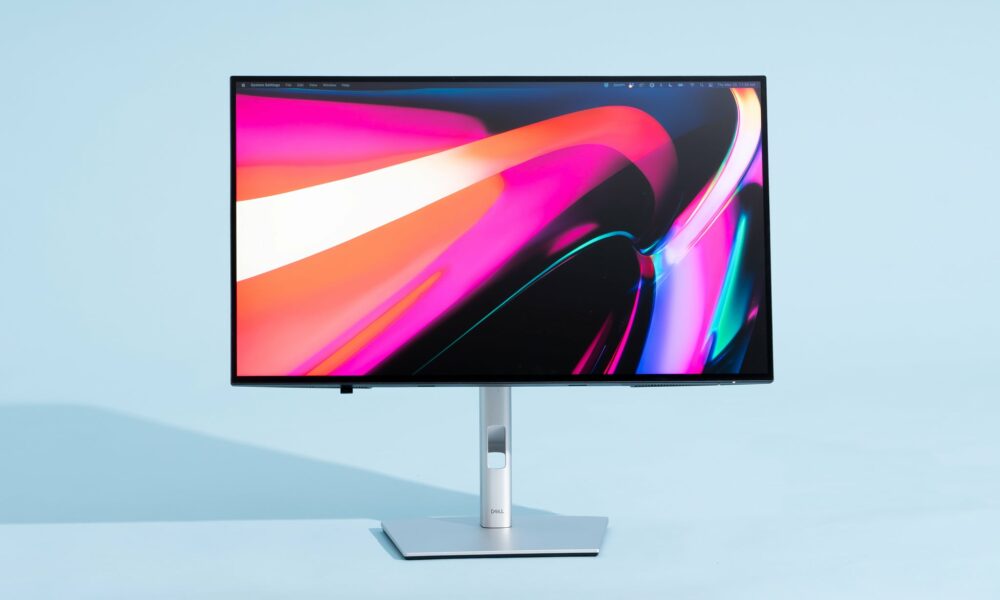The Ultimate Guide to 4K Monitors: Benefits, Features, and Top Picks for 2024

In today’s tech-driven world, a high-quality monitor is essential for both work and play. gaming monitor, with their exceptional resolution and clarity, have become increasingly popular. This guide will delve into everything you need to know about 4K monitors, from their benefits to choosing the right one for your needs.
What is a 4K Monitor?
A 4K monitor is a display device with a resolution of approximately 3840 x 2160 pixels, offering four times the detail of a Full HD (1080p) monitor. This high pixel density provides stunning visuals and is ideal for various applications, including gaming, graphic design, and general computing.
Superior Image Quality
4K monitors provide unmatched image clarity and detail, making them perfect for tasks that require high visual fidelity, such as photo editing and video production.
Enhanced Productivity
The increased screen real estate of a 4K monitor allows for better multitasking. You can have multiple windows open simultaneously without compromising on visibility or clarity.
Immersive Gaming Experience
Gamers can enjoy a more immersive experience with 4K monitors. The high resolution brings game worlds to life, with crisp textures and vibrant colors.
Future-Proofing
Investing in a 4K monitor ensures that your setup remains relevant as content increasingly adopts higher resolutions.
Choosing the Right 4K Monitor
Screen Size
The size of your monitor should align with your workspace and viewing distance. Common sizes for 4K monitors range from 27 inches to 32 inches, but larger options are also available.
Panel Type
4K monitors come with different panel types, each with its pros and cons:
- IPS (In-Plane Switching): Offers great color accuracy and viewing angles.
- TN (Twisted Nematic): Typically cheaper with faster response times but poorer color reproduction.
- VA (Vertical Alignment): Provides excellent contrast ratios but slower response times compared to TN panels.
Refresh Rate
A higher refresh rate, such as 120Hz or 144Hz, provides smoother motion, which is beneficial for gaming and video playback.
Connectivity Options
Ensure the monitor has the necessary ports to connect to your devices, including HDMI, DisplayPort, and USB-C.
Top 4K Monitors on the Market
Dell UltraSharp U2720Q
Known for its excellent color accuracy and USB-C connectivity, the Dell UltraSharp U2720Q is a top choice for professionals.
LG 27UK650-W
The LG 27UK650-W offers HDR10 support and FreeSync technology, making it a great option for both work and gaming.
Asus ROG Swift PG27UQ
For gamers, the Asus ROG Swift PG27UQ provides a high refresh rate and G-Sync compatibility, delivering a smooth and immersive gaming experience.
BenQ PD3200U
The BenQ PD3200U is designed with creative professionals in mind, offering precise color calibration and a large 32-inch display.
Setting Up Your 4K Monitor
Optimal Viewing Distance
For the best viewing experience, position your monitor at a distance where you can comfortably see the entire screen without straining your eyes. A distance of 1.5 to 2.5 feet is generally recommended.
Adjusting Brightness and Contrast
Set the brightness and contrast levels to suit your environment and reduce eye strain. Most monitors come with presets for different lighting conditions.
Calibration
Calibrating your monitor ensures accurate color reproduction. Use built-in tools or external calibration devices for the best results.
Common Issues with 4K Monitors and How to Fix Them
Scaling Issues
Windows and macOS have built-in scaling options to make text and icons legible on high-resolution displays. Adjust these settings if you encounter scaling problems.
Compatibility
Ensure your graphics card supports 4K resolution and has the necessary outputs. Updating your drivers can also resolve compatibility issues.
Refresh Rate
If you’re experiencing a lower refresh rate than expected, check your monitor settings and ensure you’re using the correct cable type (e.g., DisplayPort 1.4 or HDMI 2.0).
Future Trends in 4K Monitors
Higher Refresh Rates
Expect to see more 4K monitor with refresh rates exceeding 144Hz, providing even smoother visuals for gaming and video playback.
Improved HDR Support
High Dynamic Range (HDR) technology is continuously improving, offering better contrast and color accuracy. Future 4K monitors will likely feature enhanced HDR capabilities.
More Affordable Options
As technology advances, the cost of 4K monitors is decreasing, making them accessible to a broader audience.
Optimizing Your 4K Monitor for Specific Uses
For Gaming
- Enable Game Mode: Many gaming monitor come with a dedicated game mode that optimizes settings for gaming.
- Adjust Refresh Rate: Set your monitor to the highest refresh rate supported by your hardware for smoother gameplay.
- Use G-Sync or FreeSync: These technologies help eliminate screen tearing and provide a smoother gaming experience.
For Graphic Design
- Color Calibration: Invest in a good color calibration tool to ensure your monitor displays colors accurately.
- Workspace Setup: Arrange your workspace to minimize glare and ensure even lighting for consistent color perception.
For Office Work
- Text Scaling: Adjust text scaling in your operating system settings to make text legible and reduce eye strain.
- Multiple Monitors: Consider using multiple 4K monitors to increase your productivity by expanding your workspace.
The Future of 4K Monitors
As technology continues to evolve, 4K monitors are set to become even more advanced and accessible. Future developments may include:
- 8K Monitors: As 8K content becomes more prevalent, 4K monitors will serve as an intermediate step towards even higher resolutions.
- Advanced Connectivity: USB4 and other advanced connectivity options will make it easier to connect and power 4K monitors.
- Smart Features: Integration with AI and smart home systems could bring new functionalities to 4K monitors, making them central to our digital lives.
Conclusion
4K monitor has revolutionized the way we experience digital content, offering unparalleled clarity and detail. Whether you’re a gamer, creative professional, or simply looking to enhance your productivity, a 4K monitor is a worthy investment. By considering factors such as screen size, panel type, and connectivity, you can find the perfect 4K monitor to meet your needs. 4K monitors represent the pinnacle of current display technology, offering stunning visuals and enhanced productivity. By understanding their benefits and how to choose the right one, you can make an informed decision and elevate your digital experience.
FAQs about 4K Monitors
Are 4K monitors worth it for gaming?
Yes, 4K monitors offer a highly immersive gaming experience with stunning visuals. However, ensure your hardware can handle 4K gaming to avoid performance issues.
Can my computer support a 4K monitor?
Check your graphics card’s specifications to see if it supports 4K resolution. Most modern graphics cards do, but older models may not.
Is a 4K monitor good for everyday use?
Absolutely. The increased screen real estate and superior image quality can enhance productivity and overall user experience for everyday tasks.
Do I need special cables for a 4K monitor?
To achieve 4K resolution at high refresh rates, you’ll need cables that support high bandwidth, such as HDMI 2.0 or DisplayPort 1.4.
How do I know if my monitor is properly calibrated?
Properly calibrated monitors display colors accurately. You can use online calibration tools or hardware calibration devices to ensure your monitor is set up correctly.





